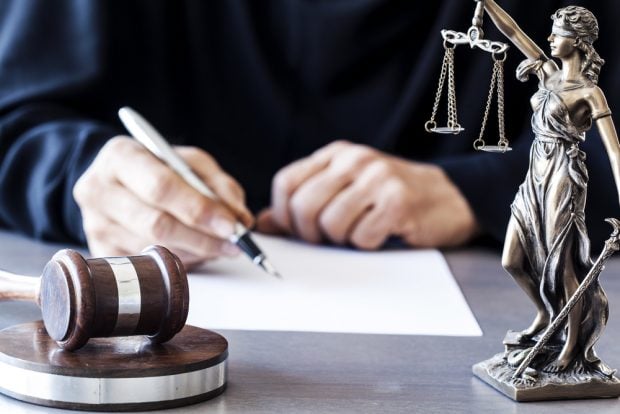 Source: Shutterstock.
Source: Shutterstock.
A federal judge ruled that CUMIS Specialty Insurance Company is not obligated to pay for the legal costs of a pending appeal for a bribery conviction of former Melrose Credit Union President/CEO Alan Kaufman.
CUMIS also is entitled to recoup Kaufman's post-sentencing expenses that the Madison, Wis.-based insurance company has already paid, according to a ruling last week by U.S. District Court Judge Denise Cote for the Southern District of New York.
Recommended For You
In September 2021, Kaufman was sentenced to three years and eight months in federal prison after a jury found him guilty of accepting bribes from a taxi medallion business owner in exchange for millions of dollars in loans from the credit union and other benefits.
Under a management and professional liability policy, CUMIS paid $3.2 million for Kaufman legal defense fees, court costs and vendor expenses. Between October and December of 2021, Kaufman's counsel requested that CUMIS advance legal fees to cover Kaufman's appeal.
CUMIS, however, maintained that legal fees for Kaufman's appeal were excluded under his policy's dishonest or willful acts exclusion and the remuneration exclusion because he was convicted on two felony counts of bribery. CUMIS nevertheless agreed to advance the fees because Kaufman said he would repay them if it would be determined that the fees were excluded from the policy's coverage.
Although the insurer has paid for much of Kaufman's legal fees incurred on appeal, it also rejected many invoices he submitted after his sentencing, according to court documents.
Last year CUMIS initiated a lawsuit that asked a federal judge to find that Kaufman's legal fees on appeal are excluded under the policy's dishonest or willful acts exclusion and the remuneration exclusion provision. The insurer contended that because a jury found Kaufman guilty of "intentionally and corruptly accepting gratuities in exchange for the provision of favorable loans" his conviction constituted a "final adjudication." This meant the insurer was no longer obligated to pay legal fees for Kaufman post sentencing proceedings and his appeal.
Kaufman countersued CUMIS arguing that there has been no "final adjudication" in his case because his appeal has yet to be decided.
"Under New York law, however, it is well settled that the imposition of the sentence constitutes the final judgment against the accused, and that the finality of it is not changed by the pendency of the appeal," Judge Cote wrote in her 11-page opinion and order. "Kaufman suggests that the Policy's term, 'final adjudication,' is distinct from 'final judgment,' and it therefore does not exclude legal fees incurred during appeal. But Kaufman does not explain why these terms should be interpreted differently, and New York cases have used the terms interchangeably."
Judge Cote also rejected Kaufman's claim that CUMIS is not entitled to recoup its payments for post-sentencing defense costs because CUMIS has unclean hands. The unclean hands legal doctrine prevents a plaintiff (in this case CUMIS) from winning a lawsuit and recovering damages if it can be proven that the plaintiff has acted improperly, illegally or unethically.
Kaufman accused CUMIS of failing to honor its agreement to advance defense costs during the appeal by denying many of his invoices in bad faith.
"Although Kaufman has alleged that CUMIS disputed many invoices, the allegations do not show that CUMIS's Dispute was made in bad faith, much less than it was immoral or unconscionable," Judge Cote wrote. "Accordingly, the defense of unclean hands does not prevent CUMIS from recovering attorney's fees it has already paid."
Court documents did not show how much CUMIS may be entitled to recoup from Kaufman.
He remains free on bond pending the outcome of his appeal by the Second Circuit Court of Appeals in New York City, which may not hear arguments of the appeal until January 2023, the Appeals Court docket indicated.
© Touchpoint Markets, All Rights Reserved. Request academic re-use from www.copyright.com. All other uses, submit a request to [email protected]. For more inforrmation visit Asset & Logo Licensing.







